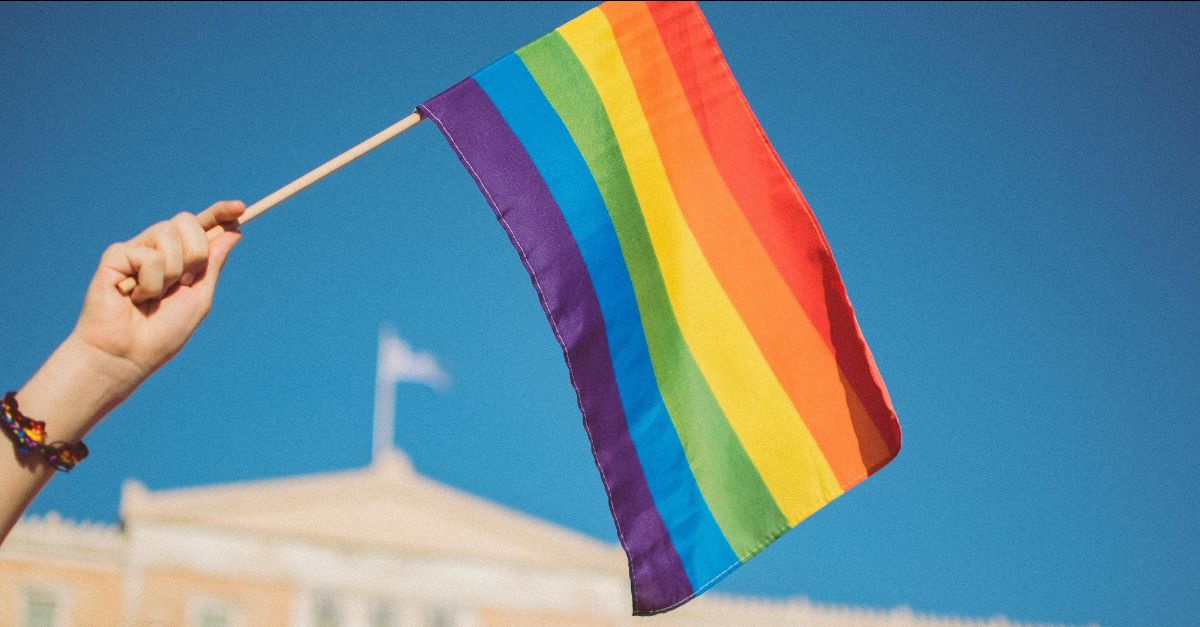OCEAN TOWNSHIP – For nearly 18 years, members of the United States military could be dishonorably discharged if they were found to be gay, lesbian, or bisexual under “Don’t Ask, Don’t Tell” (DADT), an official military policy that forced thousands of patriotic Americans out of the military, depriving them of a chance to serve their country and their hard-earned benefits. Today, Senator Vin Gopal and Assembly Members Joann Downey and Eric Houghtaling announced the introduction of new state legislation restoring these benefits for LGBTQ veterans discharged under DADT.
An estimated 100,000 LGBTQ veterans were discharged from the military under less than honorable conditions from the start of World War II until the 2011 repeal of the military’s 1993 “Don’t Ask, Don’t Tell” policy. These veterans lost their right to both state and federal benefits because they were discharged under less than honorable conditions due to their sexual identity or expression.
Under New Jersey state law, veterans of the United States military are eligible for benefits and services including the state veterans’ property tax deduction, the property tax exemption for fully disabled veterans, preference in civil service exams, and access to opportunities in housing, education, and business. However, veterans dishonorably discharged under DADT are ineligible to receive these benefits, leaving them to face higher expenses, poorer access to education and entrepreneurial resources, and other consequences. Under this legislation (S2020), these benefits would once more become available to veterans discharged under DADT.
A similar bill was recently enacted into law in New York.
The bill also restores state veterans’ benefits for members of the armed forces discharged under the Trump administration’s ban on transgender service members.
“If you’ve faithfully devoted your career and service to our national defense, you should get every penny of the benefits you’re owed,” said Gopal (D-Long Branch), who serves as Senate Chair of Military and Veterans Affairs. “Don’t Ask, Don’t Tell was a shameful policy then, and it’s shameful that its damage is still hurting veterans and their families today. With the twenty-six-year anniversary of DADT’s institution just having passed last month, it’s long past time we set this right for our LGBTQ veterans.”
Officially instituted on February 28, 1994, Don’t Ask, Don’t Tell barred openly gay, lesbian, or bisexual Americans from serving in the U.S. military. The policy banned people who “demonstrate a propensity or intent to engage in homosexual acts” from serving in the American armed forces out of a belief that their presence “would create an unacceptable risk to the high standards of morale, good order, and discipline, and unit cohesion.” Specifically, it prohibited any homosexual or bisexual person from disclosing their sexual orientation or from speaking about any homosexual relationships, including marriages or other familial attributes, while serving in the United States armed forces.
“This is about fairness, and this is about justice,” said Downey (D-Freehold). “It’s time for us to put this era of discrimination behind us and stand up for LGBTQ veterans who were intimidated, harassed, or forcibly outed as they worked hard to defend our country.”
“Whether it’s healthcare, a pension, or help finding a career, a vet is a vet, and nobody should ever be forced to forfeit their hard-earned benefits because of who they are,” said Houghtaling (D-Neptune). “Thank you to all of the dedicated LGBTQ advocates who have fought hard to pave the way for acceptance and understanding in our nation’s armed forces.”
“Until just a few years ago, able public servants like my husband Aaron in the U.S. Marines — ready and willing to fight for the United States and defend our freedoms across the globe — were barred from service because they were openly gay,” said Christian Fuscarino, Executive Director of Garden State Equality. “A generation prior, his father was almost denied the opportunity to serve because of the color of his skin. It is critical that we stand behind and uplift the courage of our armed forces, no matter who they are or whom they love. For their sacrifice, we owe it to them.”
To qualify for these benefits, eligible veterans would need to submit an application to the New Jersey Department of Military and Veterans Affairs, which would be responsible for determining the criteria and process for any applications. The bill now proceeds to the Senate Committee on Military and Veterans Affairs for debate.

